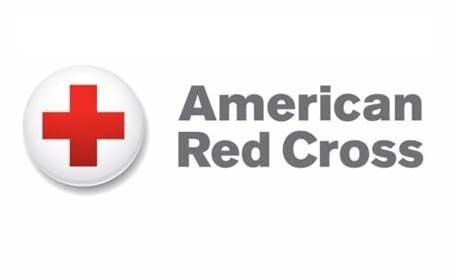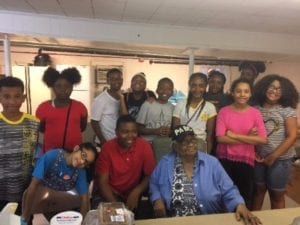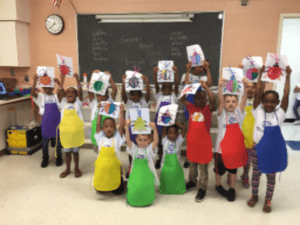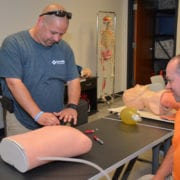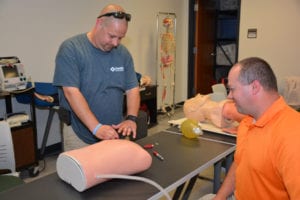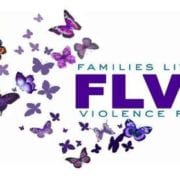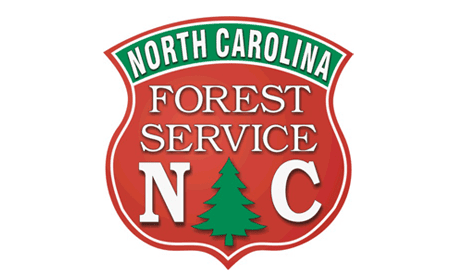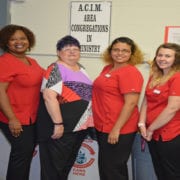Thousands answer the call, but Red Cross blood shortage continues
In appreciation, $5 Target eGiftCard™ available for all those who come out to give
DURHAM, N.C. (July 25, 2017) — Thousands of people have responded to the emergency call for blood and platelet donations issued by the American Red Cross in early July, but there continues to be a critical summer blood shortage. Eligible donors of all types are urgently needed.
After issuing the emergency call, the Red Cross has experienced a 30 percent increase in blood donation appointments through mid-July. About half of the appointments were scheduled by donors using the free Blood Donor App or at redcrossblood.org. Despite this improvement, blood products are still being distributed to hospitals as fast as donations are coming in, so more donations are needed to meet patient needs and replenish the blood supply.
“The blood supply is like a cell phone battery, it constantly needs recharging,” said Maya Franklin of the Carolinas Blood Services Region. “We sincerely appreciate those who have responded to the call to help save lives and encourage those who haven’t to consider rolling up a sleeve and give the gift of life. It only takes about an hour but can mean a lifetime for patients.”
Nearly 61,000 fewer blood donations than needed were given through the Red Cross in May and June, prompting the emergency call for donations in early July. The shortfall was the equivalent of the Red Cross not receiving any blood donations for more than four days.
How to help
To schedule an appointment to donate, use the Blood Donor App, visit redcrossblood.org or call 1-800-RED CROSS (1-800-733-2767). Donation appointments and completion of a RapidPass online health history questionnaire are encouraged to help reduce the time it takes to donate.
As a special thank you, those who come out to give blood or platelets with the Red Cross July 26 through Aug. 31 will be emailed a $5 Target eGiftCard™.*
Who blood and platelet donations help
Blood shortages could lead to delays in patient care, something Arthur Bourget learned firsthand after being diagnosed with leukemia in July 2007. When he arrived for his second blood transfusion, he was told the blood he needed was not available. He waited eight hours for blood to arrive and to receive the transfusion he needed that day.
“One thing that I committed to my wife was that I was going to beat leukemia, no matter what, and I was going to do that,” said Bourget. “But what I wasn’t going to be able to do was survive without the blood that I needed.”
Bourget went into remission following a successful treatment plan, which included 28 blood and 34 platelet transfusions. He has been a faithful advocate for blood donations ever since.
“If it wasn’t for the generosity of volunteer blood donors, I would not be here today,” he said. “My daughter would not have a father, and my wife would not have a husband. Thank you and please give blood. You may never know the life you have saved, but I guarantee they will never forget you.”
Upcoming blood donation opportunities July 25-Aug. 15
Franklin
Youngsville
7/30/2017: 11 a.m. – 3:30 p.m., Youngsville Masonic Lodge #377, 110 W. Main Street
_______________
Granville
Creedmoor
7/28/2017: 2:30 p.m. – 7 p.m., Creedmoor United Methodist Church, 214 Park Avenue
8/8/2017: 11:30 a.m. – 4 p.m., South Branch Library, 1550 S. Campus Drive
Oxford
8/1/2017: 10:30 a.m. – 3 p.m., The Thornton Branch, 210 Main Street
_______________
Person
Hurdle Mills
8/13/2017: 12 p.m. – 4:30 p.m., Walnut Grove United Methodist Church, 7215 Walnut Grove Church Road
Roxboro
7/27/2017: 1:30 p.m. – 6 p.m., National Guard Armory, 605 Burlington Rd
8/7/2017: 2 p.m. – 6:30 p.m., Person Family Medical & Dental Center, 702 N. Main St.
8/10/2017: 11 a.m. – 3 p.m., Person County Human Services Building, 355 A South Madison Blvd
8/11/2017: 11 a.m. – 3:30 p.m., Roxboro Police Department, 109 Lamar St.
Vance
Henderson
8/2/2017: 12 p.m. – 4:30 p.m., MR Williams, 235 Raleigh Rd
_______________
What to know about giving blood
To make an appointment or more information, simply download the American Red Cross Blood Donor App, visit redcrossblood.org or call 1-800-RED CROSS (1-800-733-2767). A blood donor card or driver’s license or two other forms of identification are required at check-in. Individuals who are 17 years of age in most states (16 with parental consent where allowed by state law), weigh at least 110 pounds and are in generally good health may be eligible to donate blood. High school students and other donors 18 years of age and younger also have to meet certain height and weight requirements.
Blood donors can now save time at their next donation by using RapidPass to complete their pre-donation reading and health history questionnaire online, on the day of their donation, prior to arriving at the blood drive. To get started and learn more, visit redcrossblood.org/RapidPass and follow the instructions on the site.
About the American Red Cross
The American Red Cross shelters, feeds and provides emotional support to victims of disasters; supplies about 40 percent of the nation’s blood; teaches skills that save lives; provides international humanitarian aid; and supports military members and their families. The Red Cross is a not-for-profit organization that depends on volunteers and the generosity of the American public to perform its mission. For more information, please visit redcross.org or cruzrojaamericana.org, or visit us on Twitter at @RedCross.
*Restrictions apply. Additional information and details are available at redcrossblood.org/summer. The Bullseye Design, Target and Target GiftCard are registered trademarks of Target Brands, Inc. Terms and conditions are applied to gift cards. Target is not a participating partner in or sponsor of this offer.
###

